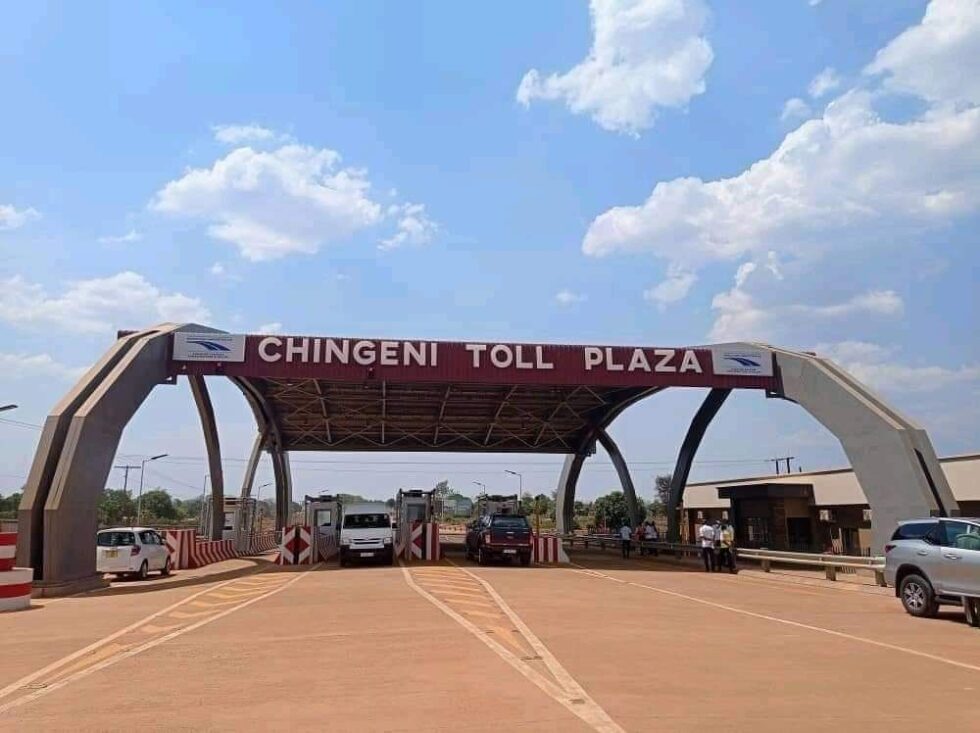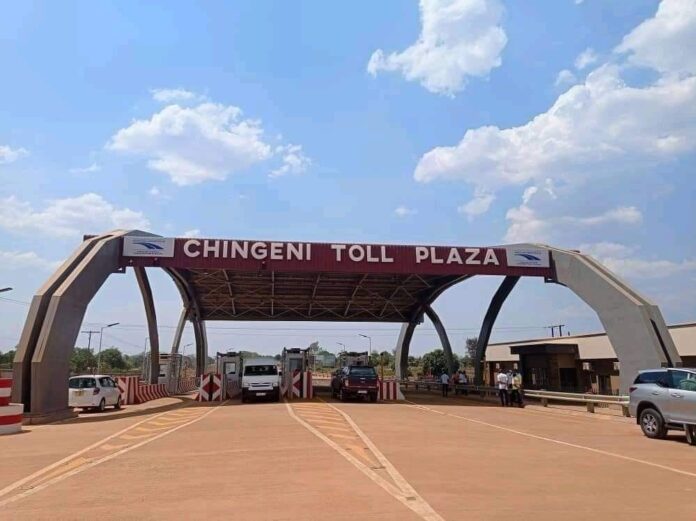By Burnett Munthali
The introduction of tollgates in Malawi has triggered widespread debate, especially when compared to countries like Botswana, where tollgate charges apply only to foreign-registered vehicles.
In Malawi, both local and foreign vehicles are required to pay toll fees at sites such as the Chingeni and Kalinyeke toll plazas, as part of the government’s plan to generate funds for road maintenance.

When the tollgates were commissioned in late 2021 and early 2022, the government positioned them as a sustainable funding mechanism for road infrastructure development.
Since then, the Roads Fund Administration (RFA) has reportedly collected approximately MWK 12.7 billion from tollgate fees.
In the year 2024 alone, toll revenue amounted to around MWK 8.6 billion, signaling strong income potential from this infrastructure initiative.
So far, MWK 3.8 billion from the total collected has been spent on rehabilitating a 6-kilometer stretch of the M1 road between Kamwamba and the Zalewa turn-off.
Estimates suggest that the Chingeni tollgate alone has the capacity to raise about MWK 4.5 billion annually, reinforcing the importance of tollgates in public finance.
Despite this progress, the revenue generated has not matched the scale of road maintenance demands across the country.
By early 2024, cumulative collections stood at MWK 9.1 billion, but constraints related to operational costs and budget availability hindered timely project execution.
To address this gap, the RFA has indicated that rehabilitation works will be implemented in phases and supplemented by road bonds to raise additional funds.
Plans are underway to construct more tollgates across the country, which authorities believe will enhance road revenue and reduce the fiscal burden on government.
However, the system has faced scrutiny over governance and accountability.
There have been reports of fraud, including an incident in which over MWK 10 million was allegedly embezzled by tollgate collectors, casting doubt on financial oversight.
Some citizens have questioned the fairness of the tollgate model, arguing that it burdens local road users while alternative options—such as foreign vehicle levies or increased fuel taxes—could have been explored.
These concerns highlight a critical question: is Malawi’s problem simply a lack of money, or is it a deeper issue rooted in weak institutional mindset and poor planning?
Tollgates have proven their capacity to generate revenue and support road rehabilitation, but unless there is transparency, efficiency, and strategic implementation, the tollgate project may fall short of its intended impact.
To truly benefit from tollgate collections, Malawi must pair financial mechanisms with a shift in national mindset—one that prioritizes integrity, inclusivity, and long-term development.



